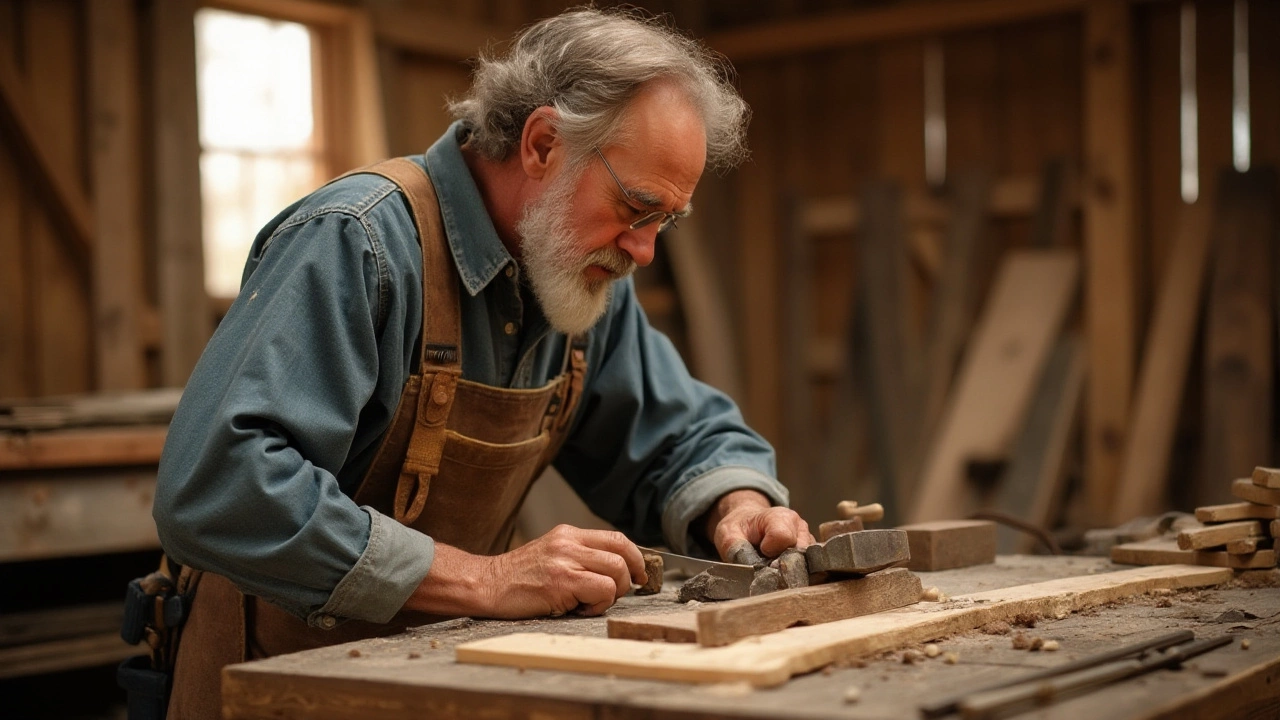Sustainable Materials for Furniture – Simple Guides and Tips
Ever wonder why "sustainable" pops up on every furniture catalog these days? It’s not just a buzzword – it means the piece is made from resources that won’t trash the planet and will last longer. If you’re looking to upgrade your living room or patio without adding to the waste pile, you’re in the right spot.
At Rustic Social we focus on handcrafted pieces that blend rustic charm with modern use. All our items are sourced responsibly, so you get a look you love and a conscience you can feel good about.
Choosing the Right Sustainable Material
First, ask yourself what the piece will do. A dining table gets heavy use, a side chair gets occasional sit‑downs, and a patio set fights weather. Matching material to function keeps things durable and avoids premature replacements.
Reclaimed wood is a favorite for tables and benches. It’s taken from old barns, factories or pallets, so the timber already had a life before you bought it. The natural patina adds character, and you’re not cutting down fresh trees.
Bamboo grows fast – one stalk reaches maturity in three to five years. It’s strong, lightweight, and works well for flooring, chairs and even upholstery frames. Look for furniture that mentions “organic bamboo” to ensure no harmful chemicals were used.
Recycled metal (often aluminum or steel) gives a sleek, industrial vibe while keeping scrap out of landfills. It’s great for patio frames because it resists rust when powder‑coated.
Eco‑fabric options include linen made from flax grown without pesticides, hemp blends, or recycled polyester from plastic bottles. These fabrics breathe, feel soft, and cut down on petroleum‑based fibers.
When you read product specs, look for certifications like FSC (Forest Stewardship Council) for wood, or GOTS (Global Organic Textile Standard) for fabrics. Those labels prove the material met strict environmental standards.
Keeping Your Eco‑Friendly Pieces in Great Shape
Even the greenest furniture needs proper care. A simple oil finish on reclaimed wood keeps moisture out and brings out the grain. Reapply every six months if the table sees a lot of spills.
For bamboo, avoid harsh chemicals that can break down the fibers. A damp cloth and mild soap work fine, and a quick wipe‑dry prevents water spots.
Metal frames benefit from a quick rinse with water after exposure to salty sea air or heavy rain. Drying off prevents corrosion, even if the coating is already weather‑proof.
Eco‑fabric upholstery should be vacuumed regularly to keep dust from settling into the weave. Spot‑clean with a gentle detergent, and avoid bleach – it can damage the natural fibers.
All these steps extend the life of your pieces, meaning fewer replacements and less waste. That’s the true payoff of sustainable choices.
Looking for more specific advice? Check out our related guides: “Most Weather‑Resistant Patio Furniture” walks you through the best metal and teak options, while “Best Furniture Brands UK” highlights companies that prioritize green sourcing. Whether you’re hunting for a durable sofa frame or a stylish coffee table, we’ve packed the details you need.
Ready to make a purchase that feels good and looks great? Browse our collection, ask our team about material origins, and pick the piece that fits your style and your values. Sustainable furniture isn’t just a trend – it’s a smarter way to live.
Amish and POLYWOOD: Exploring Sustainable Garden Furniture Options
The Amish, known for their craftsmanship and use of traditional materials, face new sustainability options with POLYWOOD. This eco-friendly, synthetic wood alternative is slowly finding its way into garden setups, offering a durable and low-maintenance choice. The article explores whether the Amish embrace POLYWOOD, known for its sustainability, and what this means for furniture buyers interested in Amish craftsmanship. Discover the blend of tradition and modernity that keeps Amish furniture relevant in today’s eco-conscious world.
More
